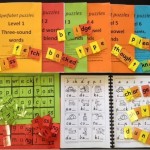Programs for children with learning difficulties
3 Replies
I wrote an opinion piece in yesterday’s online Education Age/Sydney Morning Herald in response to their virtual advertorial last week for the Arrowsmith Program.
My main point was that many programs for children with learning difficulties are nowadays marketed using anecdotes, testimonials and the language and images of neuroscience, but these are not a substitute for independent, peer-reviewed scientific evidence. Parents should ignore them, and instead seek programs based on good science.
I wrote it because I was frankly pretty shocked that a major daily newspaper would run a prominent article about an expensive and controversial program without peer-reviewed research support without seeking comment from independent experts.
It’s easy to find experts raising questions about Arrowsmith with a simple internet search, for example this blog post by Pamela Snow in response to the first journalistic offence on this topic in May.
Back then, our state Premier and Education Minister most unwisely (in my opinion) launched an Arrowsmith pilot program in local Catholic schools, provoking a storm of emails on the Developmental Disorders of Language and Literacy Network email list of which I’m a member (and if you’re a professional in this area, please consider asking to join).
A few of us wrote letters to the paper at the time, and I wrote this blog post, but it’s pretty hard to provide an effective after-the-fact reality check of such an apparent endorsement by authority figures.
Parents being marketed “neuroscience” programs for a child with learning difficulties should consider the system of “red flags” proposed by Oxford University Professor of Developmental Neuropsychology Dorothy Bishop, whose latest blog post addresses the recent promotion of the Arrowsmith program here in Australia. I hope every parent wondering how to invest their money and their child with learning difficulties’s time will read it.
One good source of information about the cacophony of available interventions for reading and spelling problems is the MUSEC Briefings, which are publicly available, plain English summaries of research relevant to special education.
Another helpful source of information for parents and others is the recent NZ article Behavioural Interventions to Remediate Learning Disorders, which audits Arrowsmith, Brain Gym, CogMed, Cellfield, Irlen lenses, Davis, Dore, FastForWord, Lexia, Lumosity, Orton-Gillingham, Slingerland, Steps and Tomatis programs.
The recent Learning Difficulties Australia Position Statement on approaches to reading instruction is also succinct and useful, and based on the best available research evidence.
And if you want a recent meta-analysis of the data (as distinct from anecdotes, testimonials and glossy marketing) on what works, try the article Effectiveness of Treatment Approaches for Children and Adolescents with Reading Disabilities: A Meta-Analysis of Randomized Controlled Trials, which examined training programs on fluency, phonemic awareness, comprehension, phonics, auditory training, medical treatments, coloured overlays and lenses, sunflower therapy and motor exercises. Its abstract says:
“The results revealed that phonics instruction is not only the most frequently investigated treatment approach, but also the only approach whose efficacy in reading and spelling performance in children and adolescents with reading disabilities is statistically confirmed”.
Finally I had a little bit of interaction in the Twitterverse yesterday with someone who seems to be an advocate of the Davis Dyslexia Method, prompting someone else to ask whether I am associated with this method. No, I am not, though I did go to one of their information evenings a couple of years ago, and afterwards wrote this blog post.
Skip the modelling in clay, tracing foreign alphabets, nerf balls, all that. To teach reading and spelling, teach reading and spelling.



Hi Alison
After dealing with senior staff at my son's school, I can understand the desperation of parents willing to try just about anything to help their kids.
Sunflower Therapy sounds good, not for my son but for me.
Ken.
dead link
NZ study, Behavioural interventions to remediate learning…. not working
found it here https://nzla.org.nz/wp-content/uploads/2018/06/Report.pdf
Thankyou! I have fixed it now. Alison